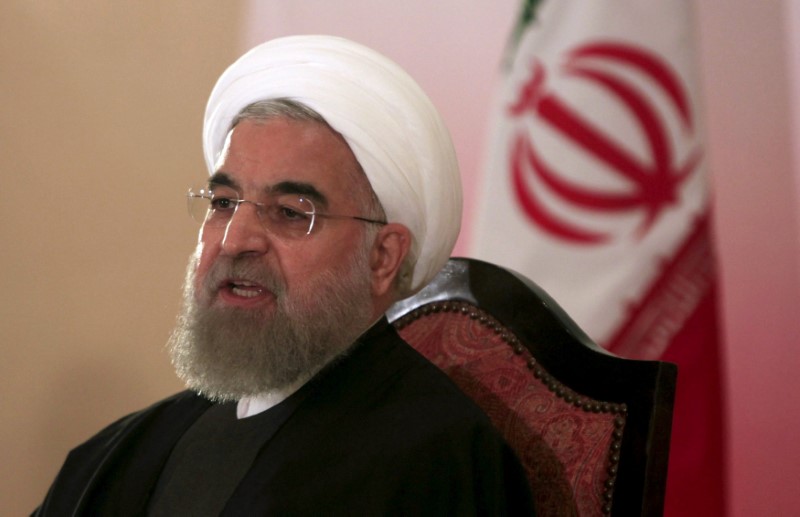Investing.com’s stocks of the week
By Arshad Mohammed
WASHINGTON (Reuters) - The United States is expected to impose sanctions on multiple Iranian entities as early as Friday following Tehran's recent ballistic missile test, but in a way that will not violate the 2015 Iran nuclear deal, sources familiar with the matter said on Thursday.
One source, who spoke on condition of anonymity, said about eight Iranian entities were to be sanctioned, or "designated" in U.S. legal jargon, for terrorism-related activities and about 17 for ballistic missile-related activities under separate existing U.S. executive orders. The source declined to name the entities.
The sources said the new sanctions had been in the works for some time and that Iran's decision to test-fire a ballistic missile on Sunday had helped to trigger U.S. President Donald Trump's decision to impose them.
The White House signaled a newly aggressive stance toward Iran on Wednesday when Michael Flynn, Trump's national security adviser, made a statement putting Iran "on notice" for test-firing the missile and senior U.S. officials said the administration was reviewing how to respond.
The new sanctions may be the leading edge of a tougher policy but the sources stressed that the United States was imposing them in a manner so as not to conflict with the 2015 Iran nuclear deal under which Tehran agreed to curb its nuclear program in return for relief from economic sanctions.
Trump said earlier on Thursday that "nothing is off the table" in dealing with Iran following the missile launch, and his fellow Republicans in Congress said they would back him up with new sanctions.
Trump's comment was in response to a question about whether he would consider military options to respond to Tehran, a day after Flynn's comment about putting Iran "on notice."
The sanctions are not likely to have much, if any, practical effect on the Iranian entities or on U.S. companies or individuals who are, with few exceptions, barred from dealing with Iran.
The sanctions are to be imposed under Executive Order 13224, which freezes the U.S. assets of entities or individuals who commit, threaten to commit, or support terrorism, and Executive Order 13382, which freezes the assets of weapons of mass destruction proliferators or their supporters.
Given the long history of U.S. sanctions against Tehran dating to the 1979 Islamic Revolution, there are unlikely to be any assets under U.S. jurisdiction to be blocked.
However, the sanctions could have the effect of dissuading foreign companies from dealing with the Iranian entities who are designated, said Brookings Institution analyst Robert Einhorn.
Spokespeople for the White House, the State Department and the Treasury Department had no immediate comment.
